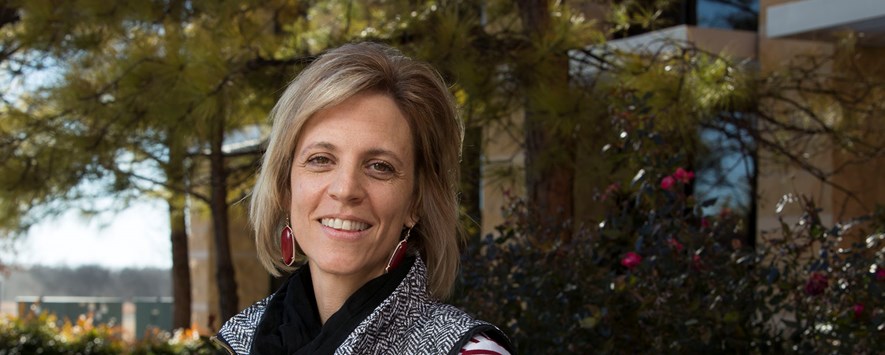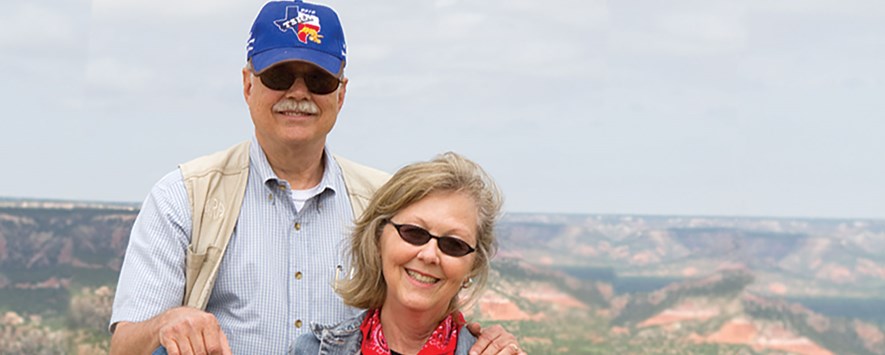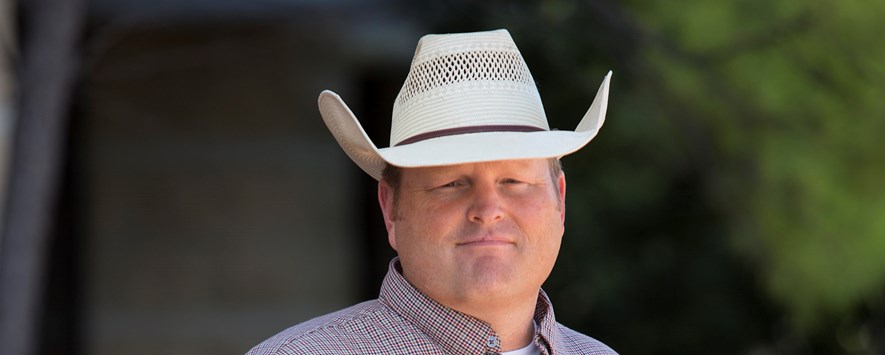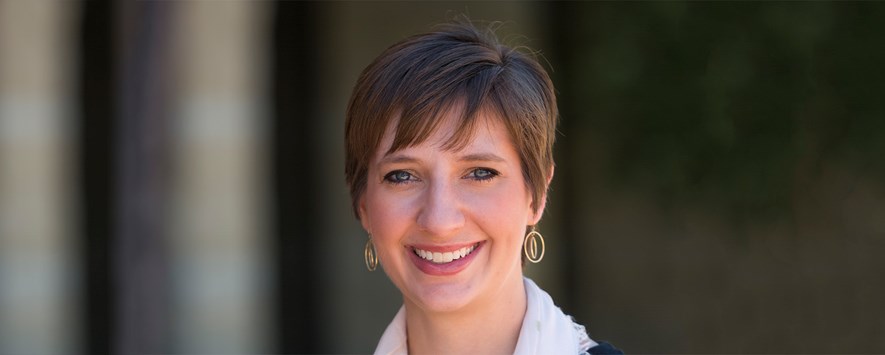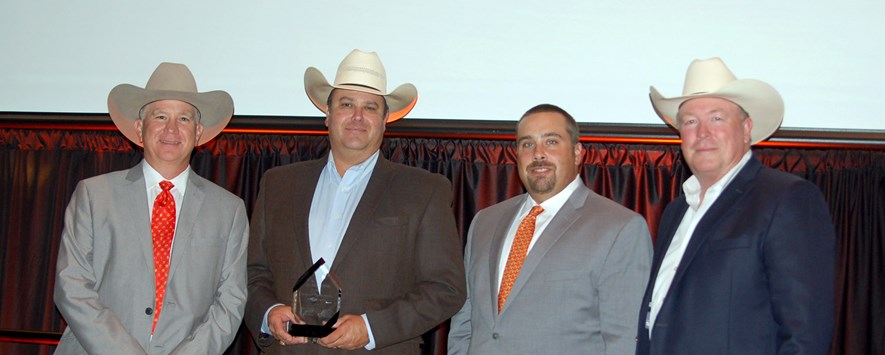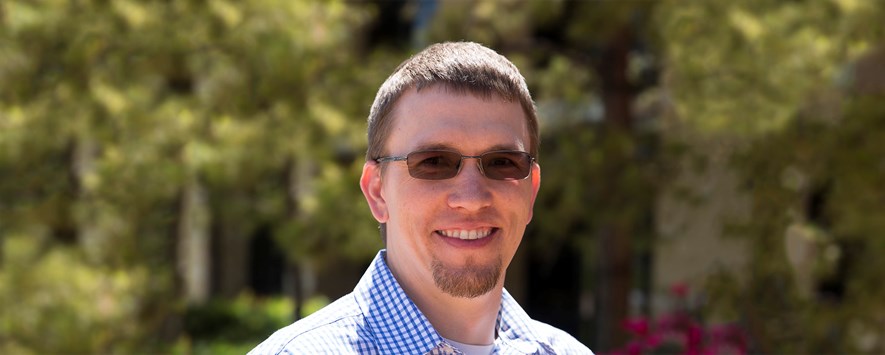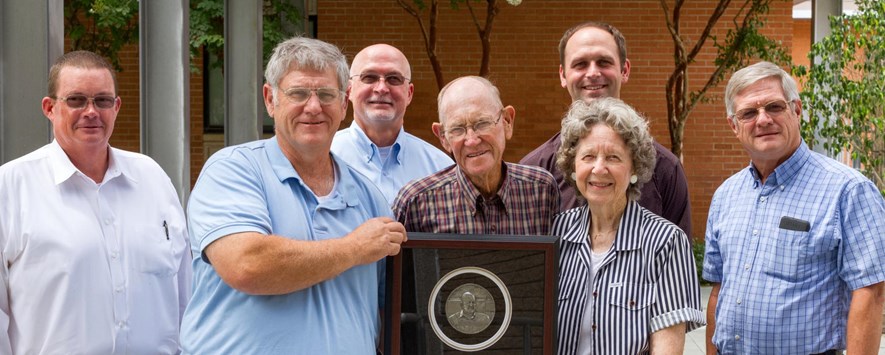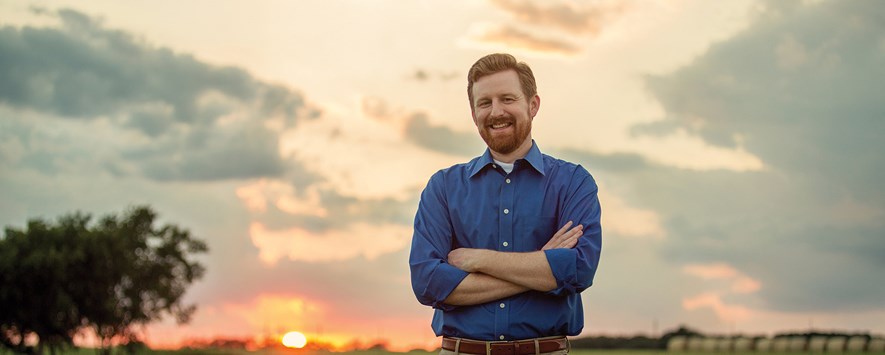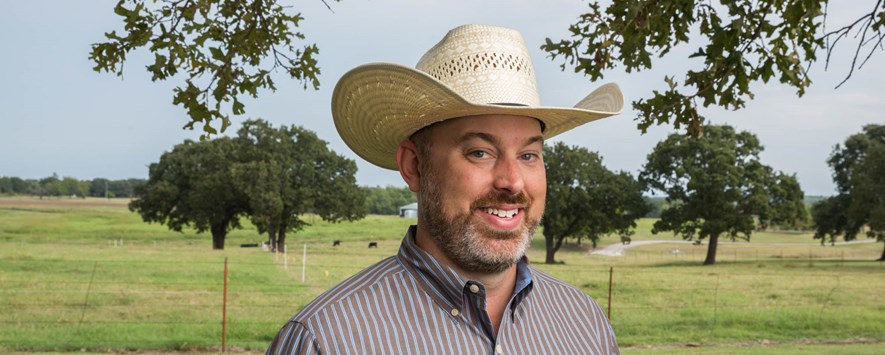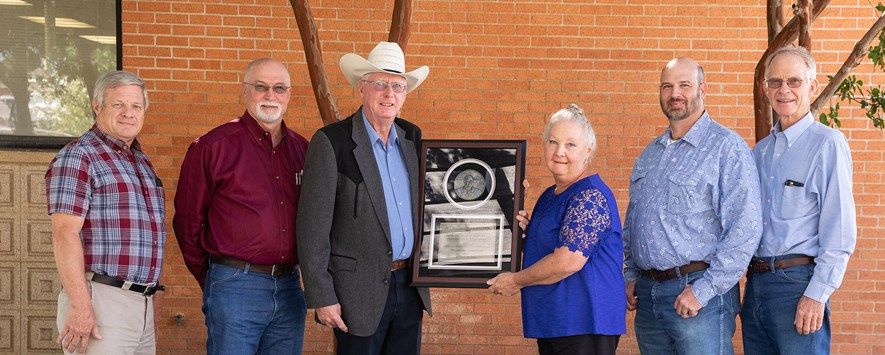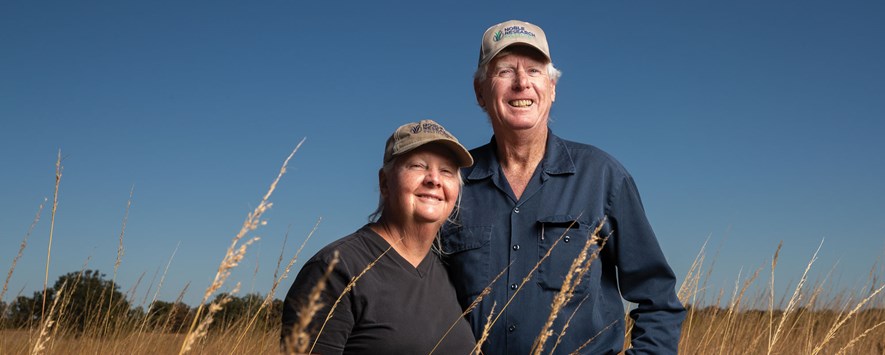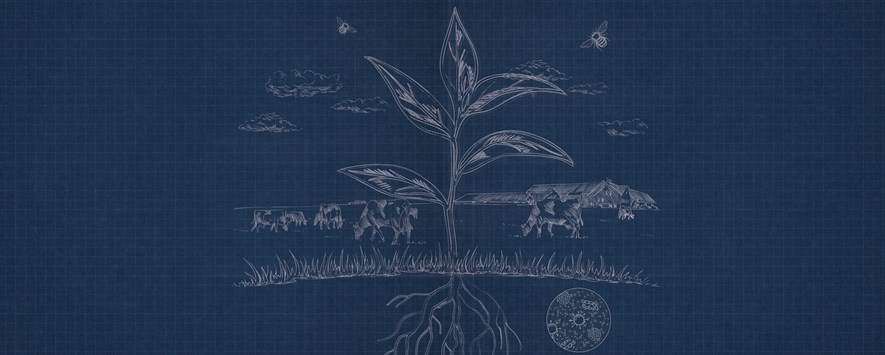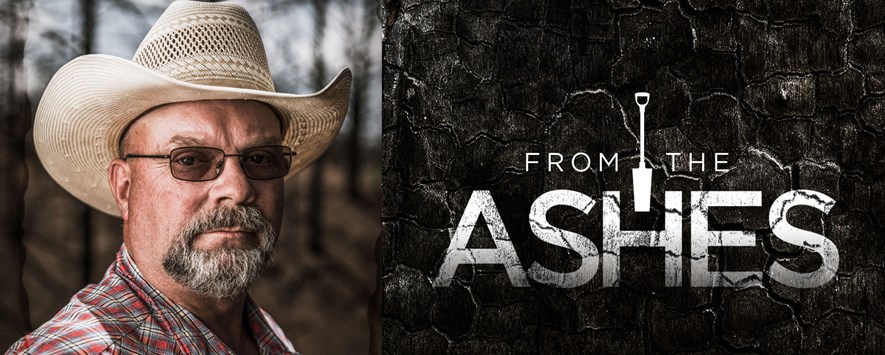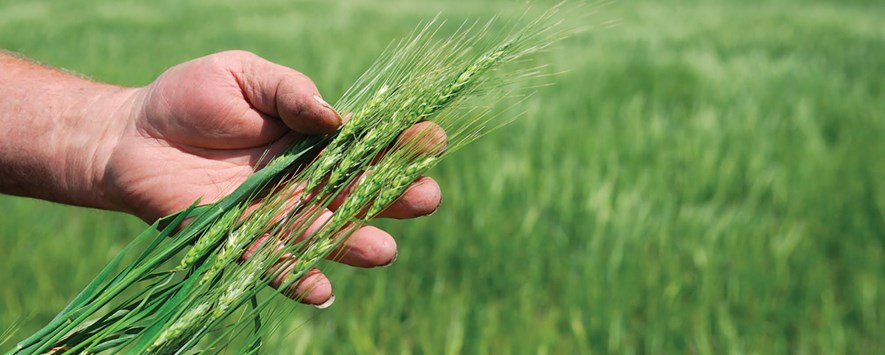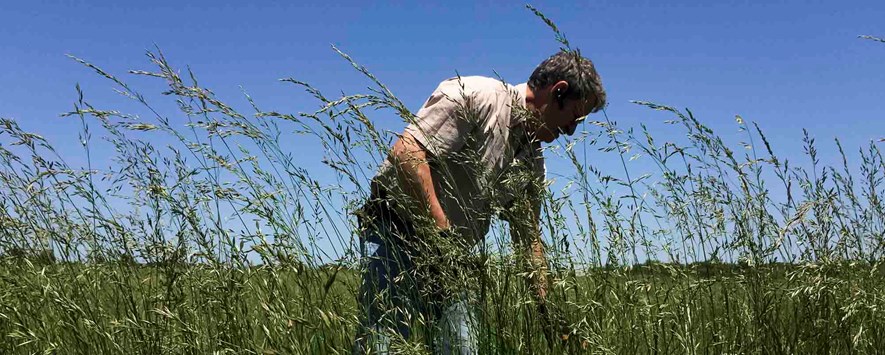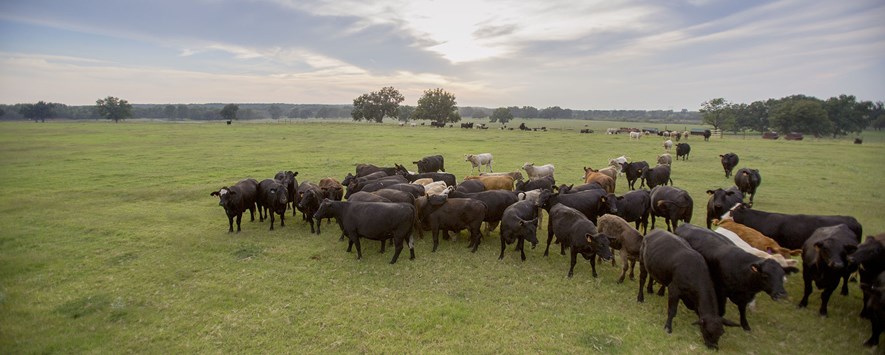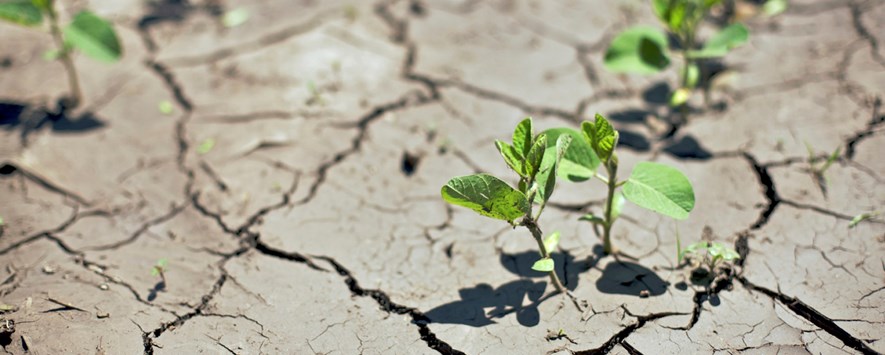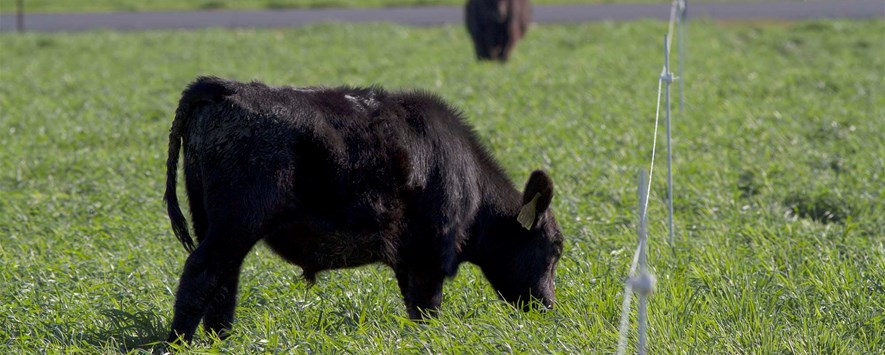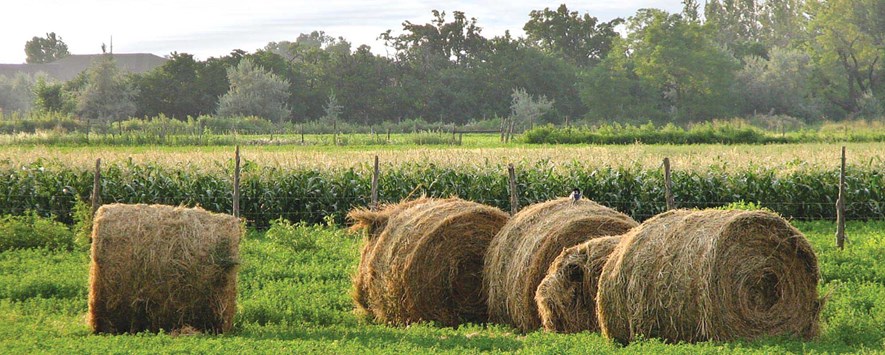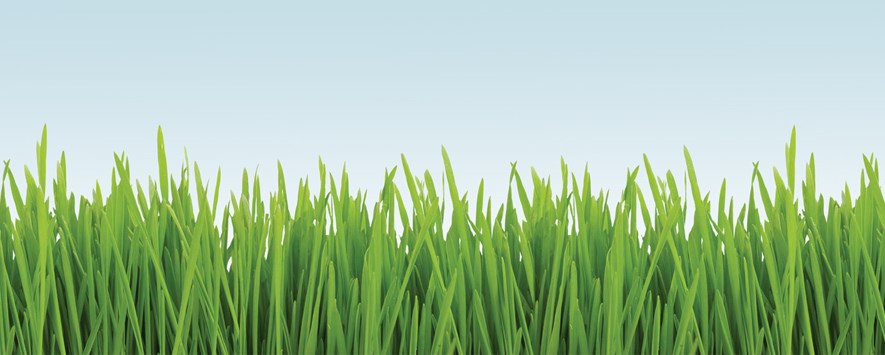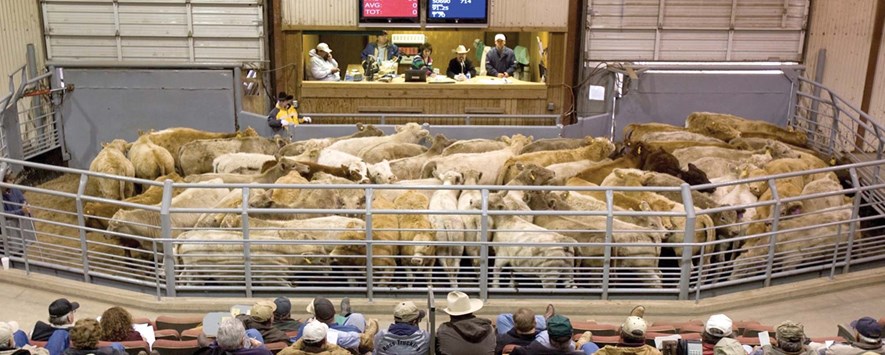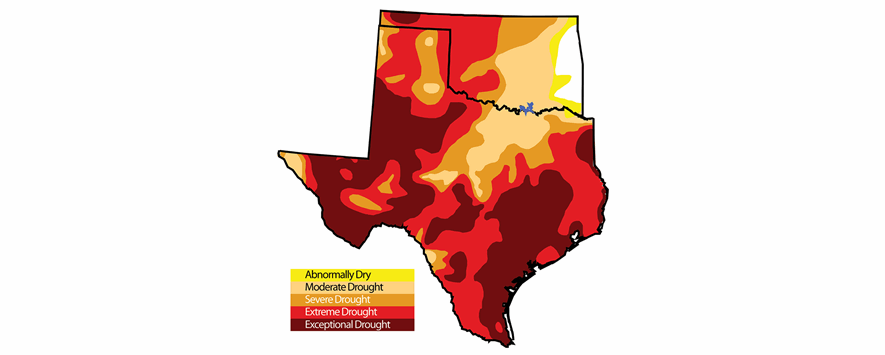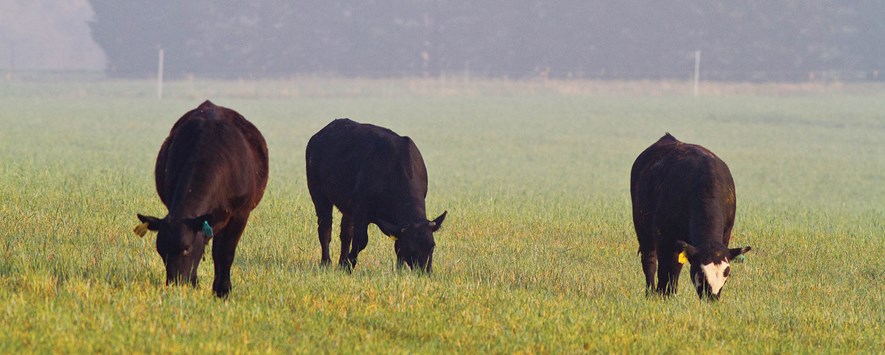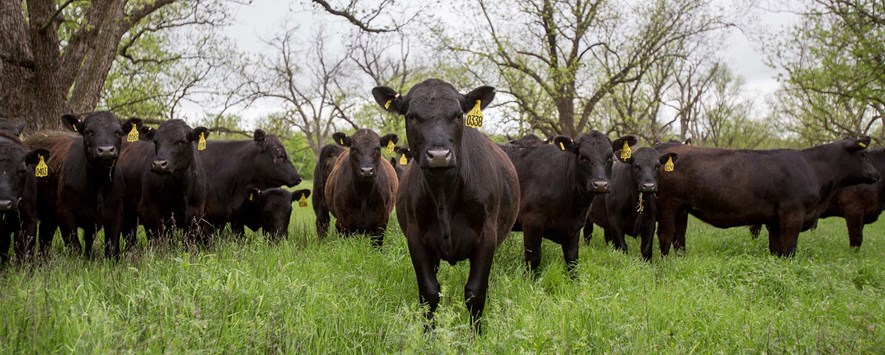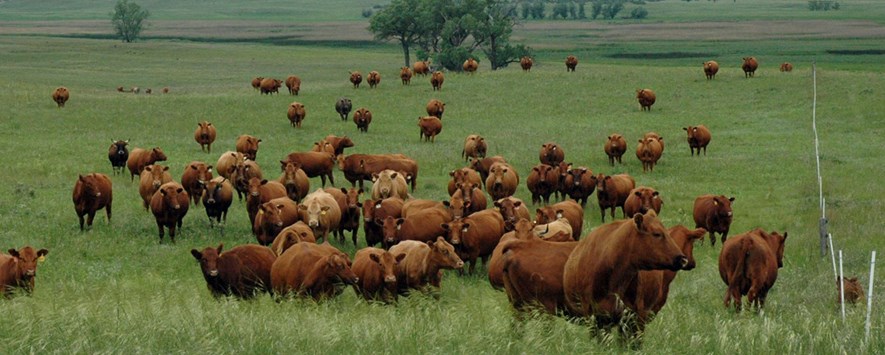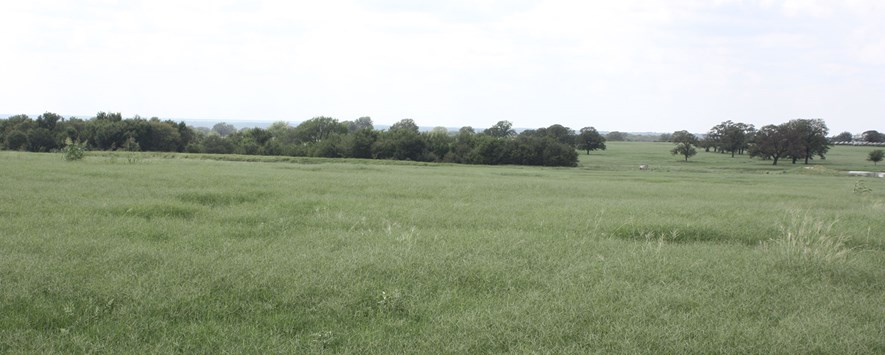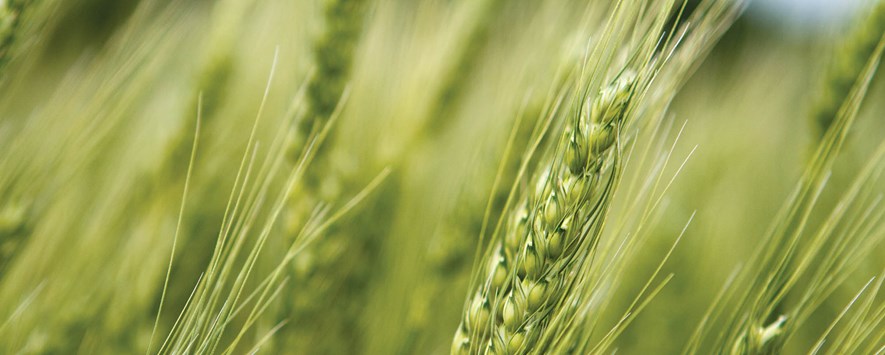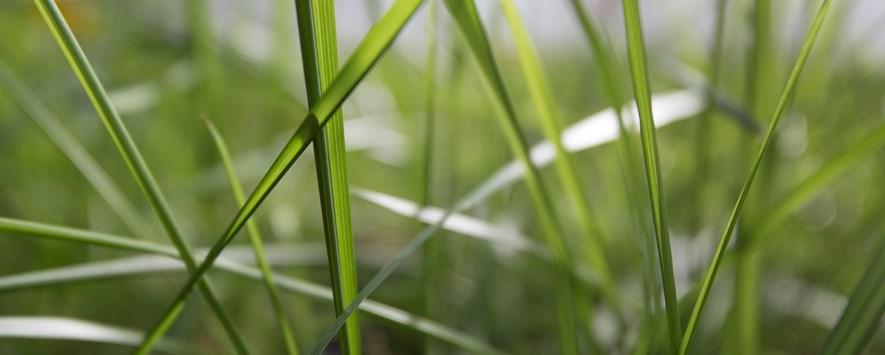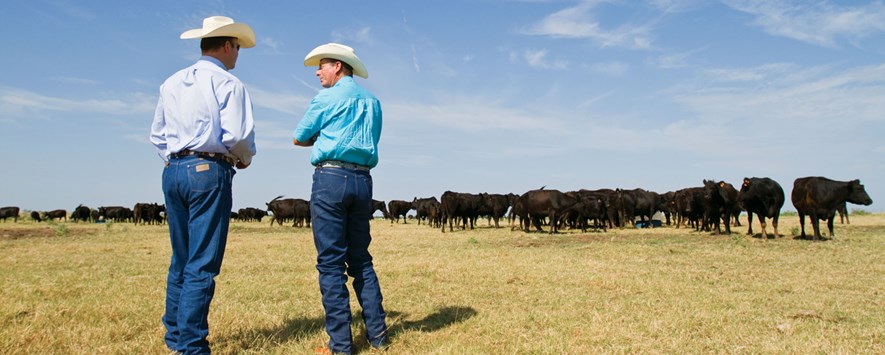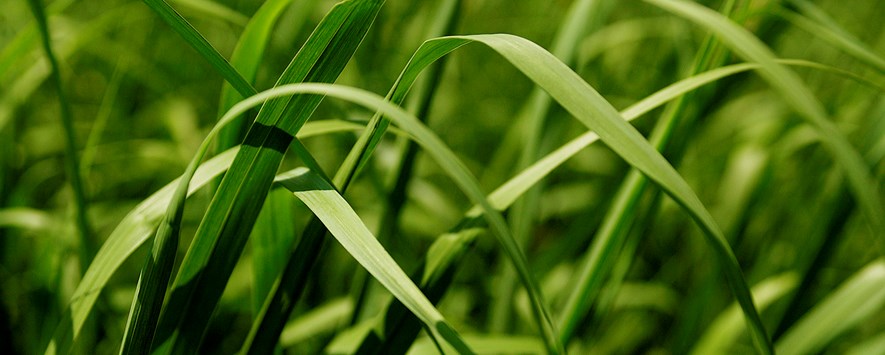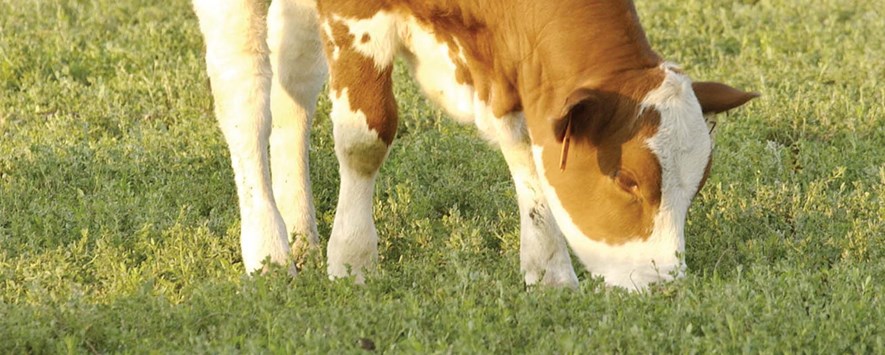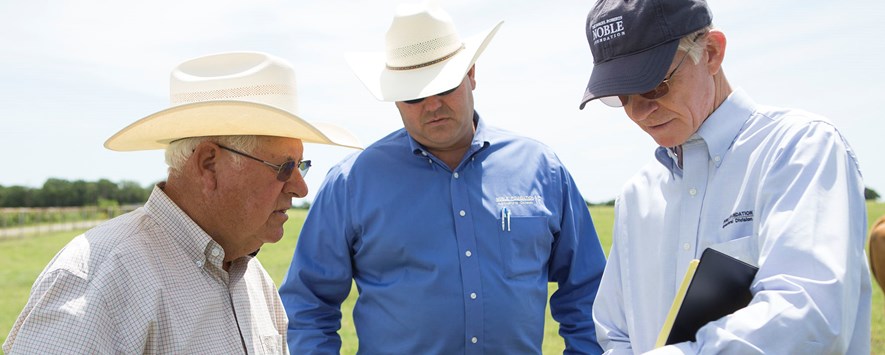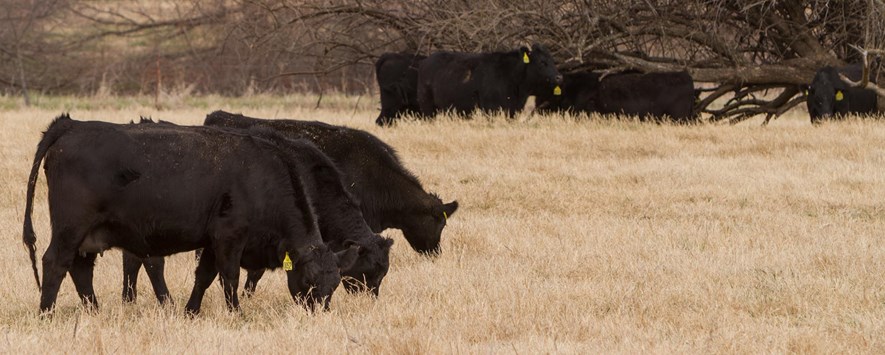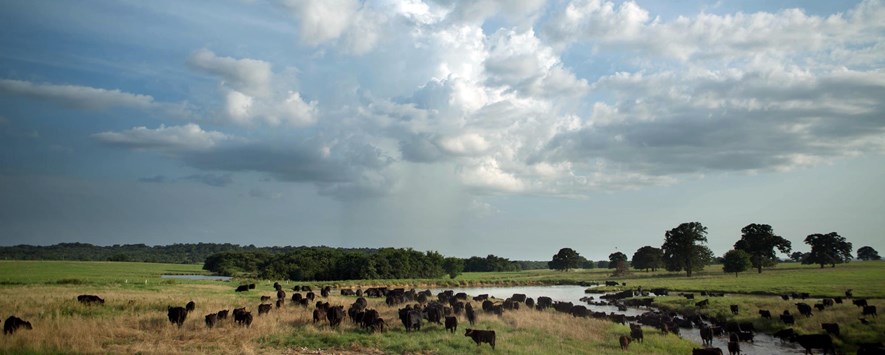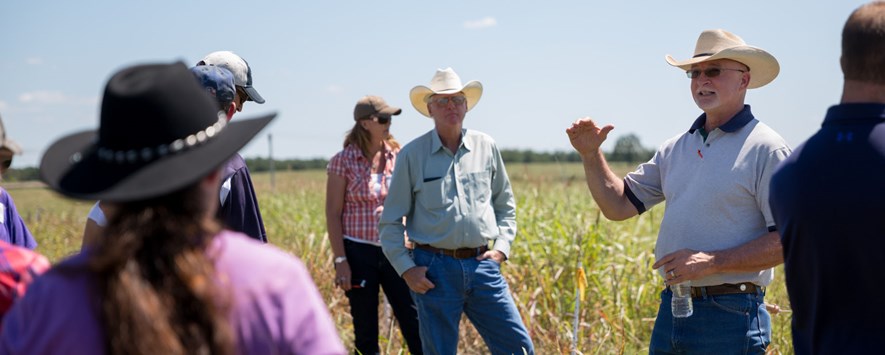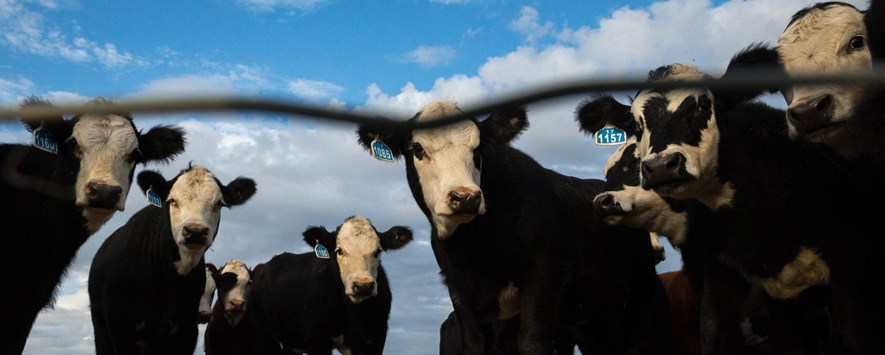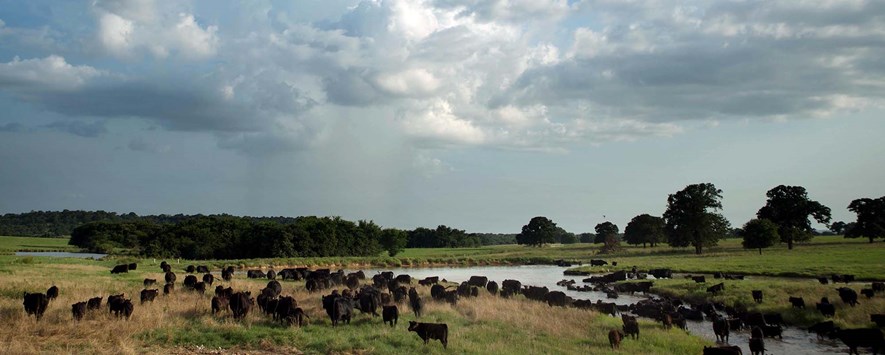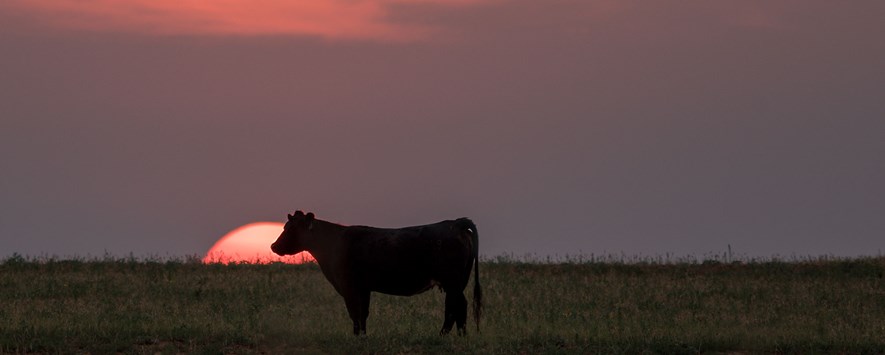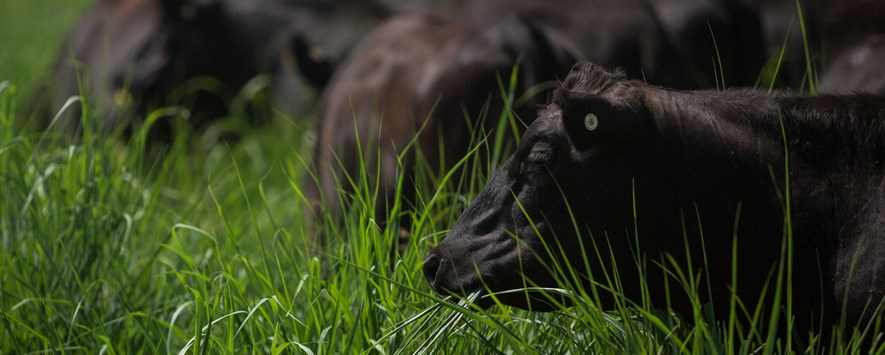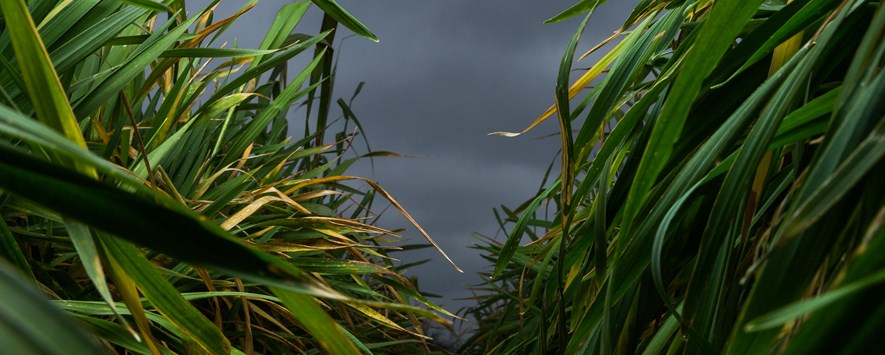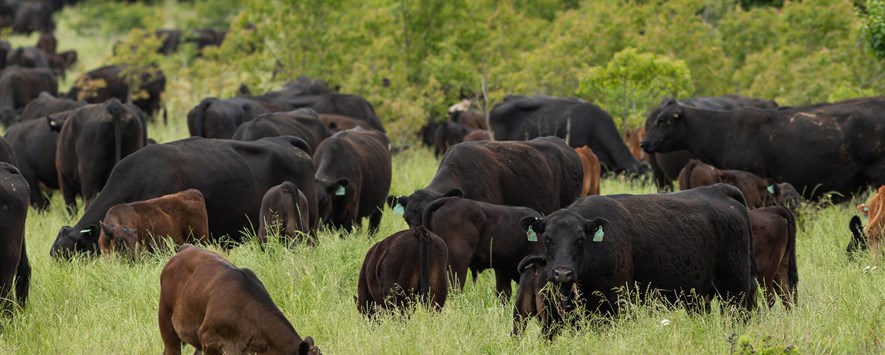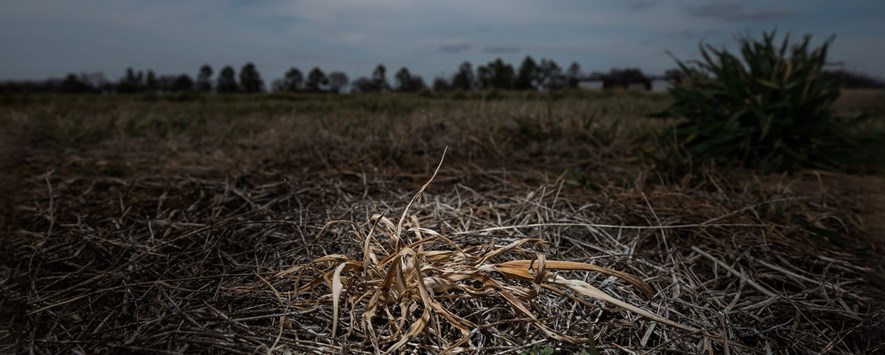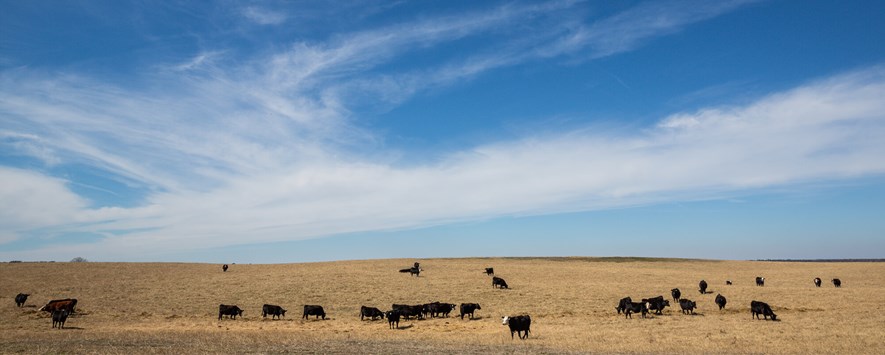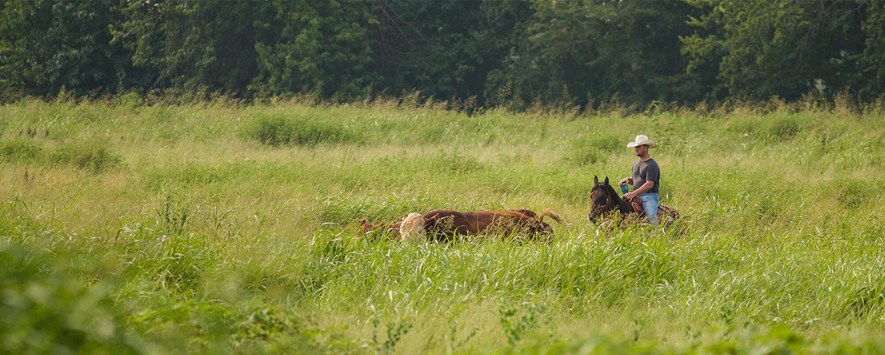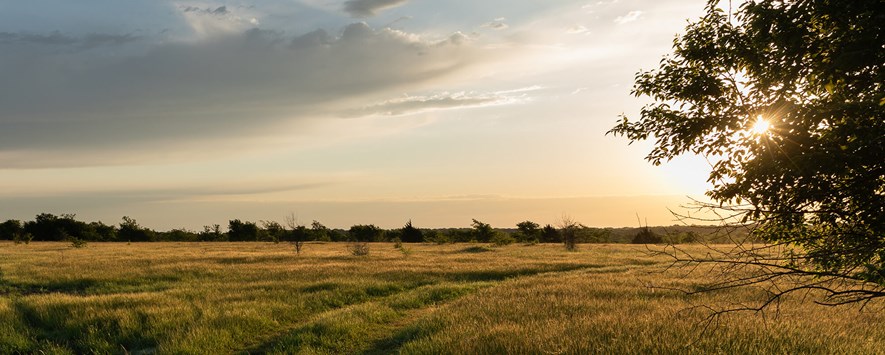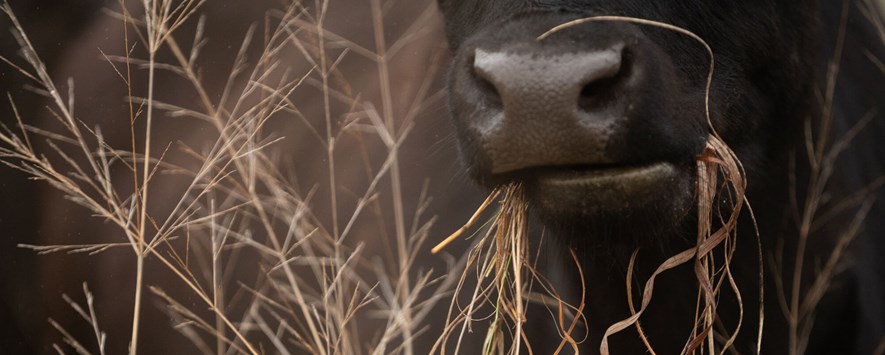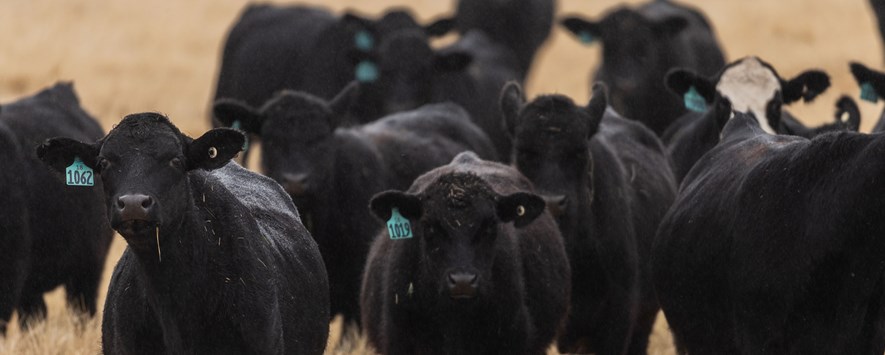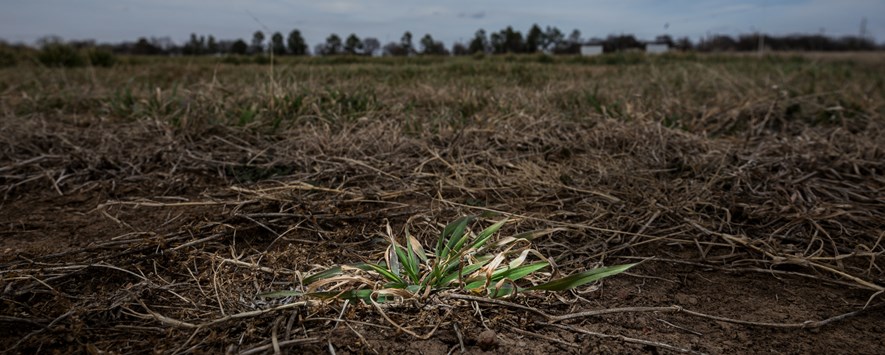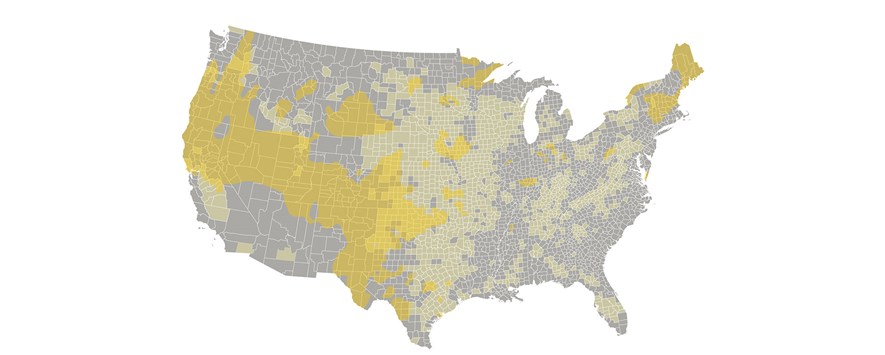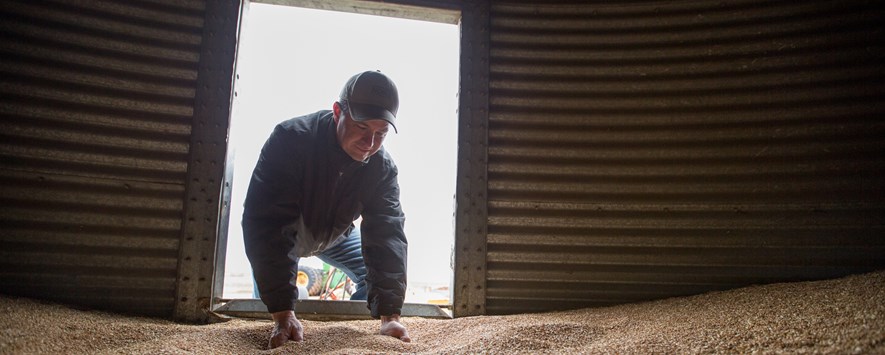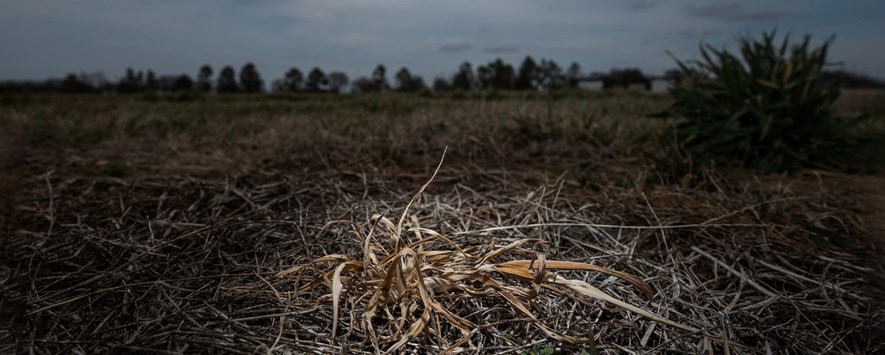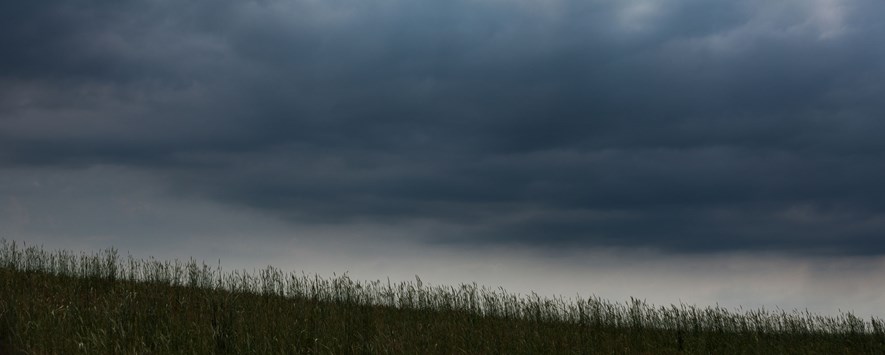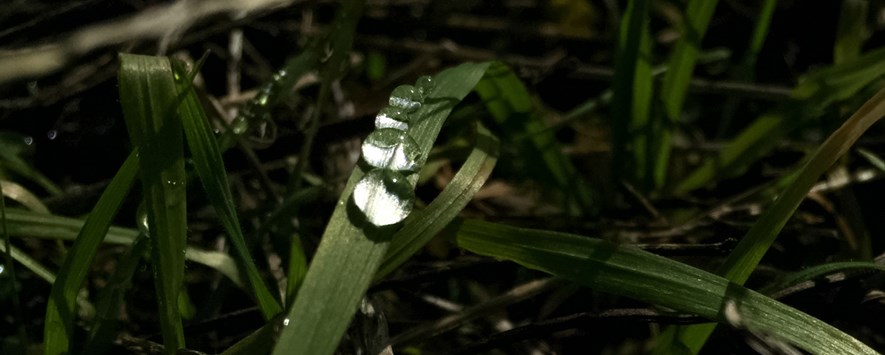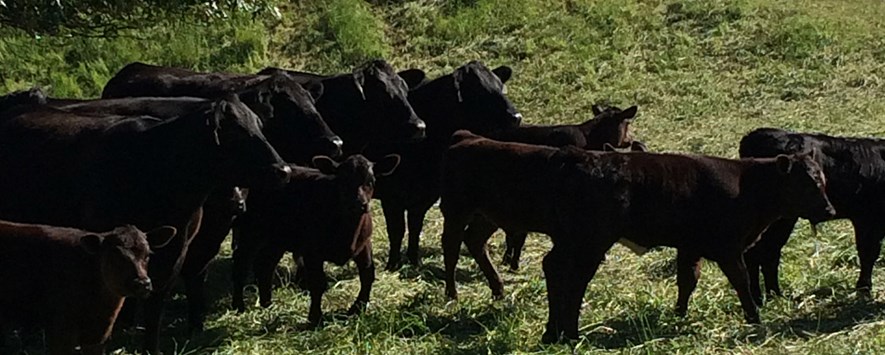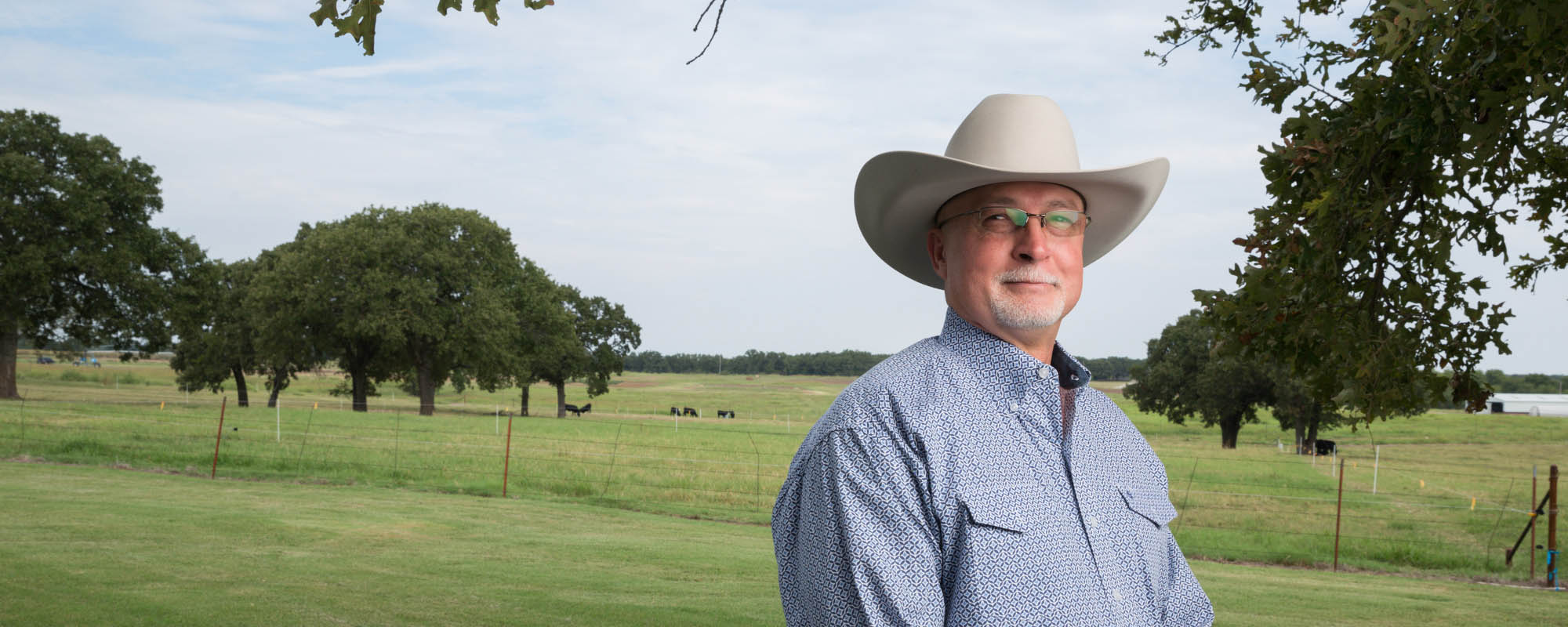
Hugh Aljoe News
Hays joins Noble Research Institute's Agricultural Division
Noble Research Institute has selected Amy E. Hays as the educational services manager in the Agricultural Division.
Pursuing Dreams
The Noble Research Institute's Basic AG program provides sound education to first-time agricultural producers.
Goodwin joins Noble Research Institute's Agricultural Division
Noble Research Institute has selected Jeff Goodwin as a new pasture and range consultant in the Agricultural Division.
Johnson joins Noble Research Institute's Agricultural Division
Noble Research Institute has selected Myriah Johnson as a new agricultural economics consultant in the Agricultural Division.
Noble Research Institute consultant named Educator of the Year
Noble Research Institute Livestock Consultant Robert Wells, Ph.D., was recently selected as the 2016 Oklahoma Beef Quality Assurance Educator of the Year.
Bradley joins Noble Research Institute's Agricultural Division
Noble Research Institute has selected Jason Bradley as a new agricultural economics consultant in the Agricultural Division.
Robert Smith receives Noble's 2016 Leonard Wyatt award
Noble Research Institute presented Robert Smith with the 2016 Leonard Wyatt Memorial Outstanding Cooperator Award during a special presentation yesterday at the organization's all employee meeting.
Some Things Never Change
Becoming the Noble Research Institute opens up new opportunities for the future. But, while Noble's name and legal structure may change, the organization's spirit remains rooted in its mission and the people who breathe life into it.
Cook receives honor for advancing rangeland management
Rob Cook, pasture and range consultant, has been selected as the 2017 Texas Section Society of Range Management (SRM) Association Outstanding Young Range Professional award recipient.
Noble Selects 2019 Leonard Wyatt Award Winner
ARDMORE, Okla. — The Noble Research Institute presented William and Karen Payne with the 2019 Leonard Wyatt Memorial Outstanding Cooperator Award.
As part of Noble’s mission, the organization...
Paving Destiny's Dirt Road
Noble Research Institute presented William and Karen Payne with the 2019 Leonard Wyatt Memorial Outstanding Cooperator Award for their dedication to land stewardship and education.
Noble Land Stewardship Program Aims to Help Ranchers Put Numbers to the Value They Bring to Society
When asked about his cow-calf operation in Blooming Grove, Texas, Gary Price doesn’t open with the number of cows he runs or the breed he raises. Instead, he starts with the soil, describing...
From the Ashes
Jimmy and Ginger Emmons press on from the Rhea Fire knowing it cannot overpower the agriculture community’s spirit or the soil’s ability to give life.
Winter Pasture Options Following Summer Drought
The drought conditions have left forage resources for this year's fall and winter in short supply for most producers. Over the last couple of months, calves have been early weaned and cattle herds have been culled heavily, relocated to pasture or completely dispersed.
Remember These Drought Management Strategies During the Rest of the Summer
Unless we have an atypically wet summer, many producers will be forced to implement some drought management strategies, if they have not already. Here are a couple of topics to keep in mind looking forward to the remaining summer.
Early management promotes healthy pasture
The spring growing season is at hand. Therefore, it is time to develop management plans for our warm season pastures.
7 Guidelines to Help Cattle Producers Manage Through Drought Conditions
There is a common denominator for producers who cope with drought better than others - they all have active drought management plans.
Wanting more "green" early in spring?
The winter pasture that was planned for last fall may not have developed to expectations or was not planted due to poor moisture conditions going into the fall. What can be planted now to bring about earlier spring pasture?
Alfalfa: Not Just Another Pretty Hay
Alfalfa's value as a hay or feed supplement is well recognized, but its usefulness as a grazing forage is often overlooked.
Keys to Establishing Summer Forages
The window of opportunity to plant summer annual forages is at hand while it is closing for most perennial warm-season forages. It is usually recommended that perennials be planted by mid-May.
Integrity Beef Alliance: Marketing Value-stacked Calves
The beef cattle industry has several Value Added Calf programs through which beef producers may market calves. The Integrity Beef Alliance is one such program.
Plan Stocking Rate Based on Rainfall
Even with the rains during the fall of 2011, much of Oklahoma and Texas is still under drought advisories. Long-term forecasts are not promising for abundant rainfall during the spring or summer of 2012.
Assess Forage Reserves Now for Fall, Winter Grazing
There are several "classes" of reserve forages that are available for grazing livestock beginning in September and going forward through winter. It is critical to take inventory of forage reserves now to determine what is on hand and what is expected to be produced.
Potential mob graziers should consider precautions
UHSD grazing is an approach to managing livestock on a land resource area that allows herd impact to be the catalyst for a beneficial outcome.
Pasture management plan prepares producer for year
Now is the time for cattle producers to develop their pasture management plans to achieve the best possible outcomes this year.
Planning for drought in rain promotes future success
There are several management practices that can be implemented to ensure pasture recovery and additional reserves.
Noble releases four new small grains forages
The Noble Research Institute's small grains breeding program is the longest running breeding program in the Foundation's history. This ongoing work has produced four new small grains cultivars over the past few years.
Monitoring summer forage assists winter management
It is a good time for producers to inventory forages - including what is going to be harvested and stored as hay (or silage) as well as the production remaining in the pastures that will be grazed.
Changing Consultation to Meet the Needs of Producers
The Noble Research Institute Agricultural Division's consultation program underwent numerous changes between the middle of 2009 and the end of 2010 to improve efficiencies and effectiveness.
Eight steps aid successful native grass establishment
Native grass plantings are of increased interest to producers. The pros relative to introduced perennial pasture grasses are noteworthy.
Alfalfa Is 'Almost Permanent' Pasture
In recent years, grazing-type alfalfa varieties have been released, providing opportunities to livestock operations as a low-input, high-return forage, if managed properly; stands typically could last three to five years with good management.
Consultation group evolves to better serve today's producers
The second in a series on the Agricultural Division's plans to meet current and future agricultural needs.
Winter offers ideal time for key forage management activities
Although many of us think of the winter as being a slow time in forage management, it is actually the ideal time to perform some key activities that allow us to better manage our pastures and grazing...
How to Prioritize Pasture When Cutting Expenses on the Ranch
When economic times necessitate "tightening of the purse strings," so to speak, too often livestock producers cut back severely on pasture management and associated expenses. This often leads to the...
2017 Leonard Wyatt Memorial Outstanding Cooperator Award
In 2004, the Noble Research Institute established the Leonard Wyatt Memorial Outstanding Cooperator Award. The award honors an agricultural producer who exemplifies what the term "cooperator" implies...
New Name, Same Services
I have some exciting news about our organization to share with you. Earlier this year, the Noble Board of Trustees elected to separate the activities of Noble Foundation, and that transition began on...
The Year 2017 in Review
Hugh Aljoe, director of producer relations, calls 2017 "the year of a new beginning." Here are a few highlights from the year.
Building New Learning Experiences for You
Hugh Aljoe, director of producer relations, welcomes Noble News and Views readers to 2018 and offers a new opportunity to stay connected with the Noble Research Institute. Sign up for the latest information and learning opportunities.
Great Challenges: How Noble Will Address Them for the Future of Agriculture
The Noble Research Institute’s mission is to deliver solutions to great agricultural challenges, which are significant threats to the viability of agriculture in the Southern Great Plains and beyond. Three focus challenges include economic uncertainty, soil health, and education and training.
What Is High Stock Density Grazing?
High stock density grazing has intentional impacts on the soils, forages and ultimately livestock production. It implies there is active management occurring with the grazing livestock.
Great Challenge 1: Economic Uncertainty
One of the greatest challenges facing agriculture is economic uncertainty. Farmers and ranchers can mitigate economic risk by building resiliency in their operations, and Noble research aims to help.
Inviting You Into the Regenerative Journey
For over 75 years, Noble Research Institute has built relationships with farmers and ranchers. Here are the next steps in our regenerative journey.
Managing Pastures Before and During Drought
Pasture managers may dread droughts. However, with proper planning and preparation, they can minimize the damage and keep operations running smoothly.
Tips for Managing Cattle Operations During Drought
The Noble Research Institute agricultural consultants recommend agricultural producers and other natural resource managers keep strong records, evaluate their operations, plan for the future, and act accordingly at all times but especially during drought.
How We Are Reclaiming Grazeable Acres With a Long-Term Regenerative Management Plan
Managing plant succession and reversing woody encroachment gives us more acres to graze.
How Can I Tell if the Energy Flow is Broken (And How Can I Fix it)?
With this discussion, our objective is to determine if energy flow is limiting the functionality of the four ecosystem processes under our management. We will look at four scenarios of broken and impaired energy flows in grazing land situations.
Critical Management Strategies for Dormant Season Grazing During and Following Drought
Take steps to manage the limited forage you have this fall and winter. The right choices not only sustain your operation, but also ensure the health of your rangeland long term.
7 Steps to Creating a Successful Ranch Management Plan
Learn the seven steps of intentional management in ranching operations and how to manage toward realistic, well-defined goals.
Regenerative Agriculture Is About Direction Over Perfection
For most agricultural enterprises, success and long-term viability ultimately hinges on soil health.
Prepare for Drought With Regenerative Ag Mindset
Drought is a natural and regular event in grazing lands. A drought is a period of time when an area or region experiences below-normal precipitation.
Prepare for Drought With Regenerative Ag Mindset
Regenerative agriculture cattle producers are better prepared during drought to adjust stocking rates and make proactive decisions on the ranch.
Jimmy Kinder Recognized for Willingness to Share Ag Experiences
This year, the Noble Research Institute is pleased to recognize Mr. Jimmy Kinder of Walters, Oklahoma, as the 2018 recipient of the Leonard Wyatt Memorial Outstanding Cooperator Award. Jimmy Kinder and his wife, Margaret, have been cooperators with the Noble Research Institute since 2007.
Managing Pastures Before and During Drought
Pasture managers may dread droughts. However, with proper planning and preparation, they can minimize the damage and keep operations running smoothly.
Not All Rainfall Is Effective
Generally speaking, a 1% increase in organic matter corresponds to an increase in soil water-holding capacity by about 20,000 gallons of water per acre.
Rainfall and forage data guide stocking decisions
The adage "you cannot manage what you do not measure" has many applications, including stocking rate or, more accurately, carrying capacity. However, in the management of beef cattle operations, carrying capacity has traditionally received little attention.
Intuitive assessment aids stocking rate management
The intuitive approach to determining stocking rate adjustments uses producers' experience and historical information.
